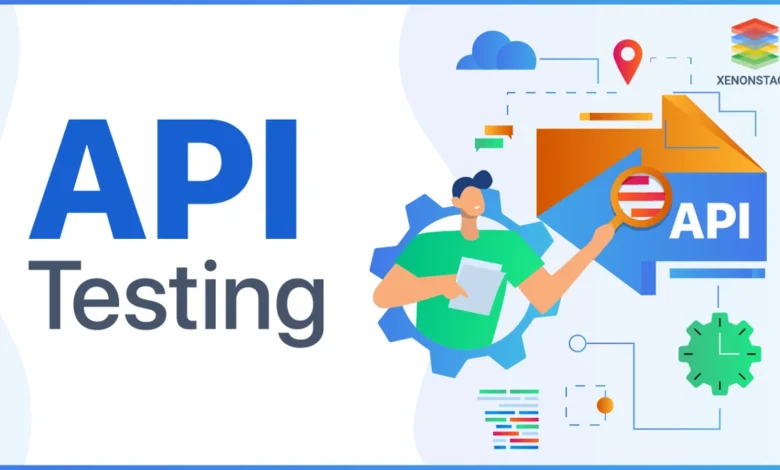How Do You Select the Right API Testing Tools for Your Tech Stack?

API testing is an essential part of ensuring the functionality, reliability, and security of modern applications. As the backbone of communication between different services, APIs require thorough testing to ensure they meet expectations and don’t introduce issues into the system. But with so many API testing tools available, how do you choose the one that best fits your tech stack and project needs?
In this article, we’ll guide you through the process of selecting the right API testing tools for your tech stack, considering factors like integration, testing types, scalability, and specific project requirements.
Why API Testing is Critical
APIs facilitate communication between different systems, applications, and microservices. Because of their integral role, testing APIs is crucial for ensuring:
- Correct functionality: Ensuring that the API performs as expected and returns the correct data.
- Security: Verifying that APIs are protected against vulnerabilities such as unauthorized access or data breaches.
- Performance: Testing APIs under varying loads to ensure they scale and perform under pressure.
- Compatibility: Ensuring that APIs work across different environments, platforms, and devices.
Selecting the right API testing tool is key to performing comprehensive and effective API testing. It helps streamline the process, reduces testing time, and ensures that your application remains secure and functional.
Key Considerations for Selecting the Right API Testing Tools
When selecting the right API testing tools, key considerations include ease of integration with existing workflows, support for various protocols, automation capabilities, and scalability for handling complex test scenarios.
Let’s read about these key considerations in detail.
1. Compatibility with Your Tech Stack
One of the most important factors to consider when selecting API testing tools is compatibility with your tech stack. You need a tool that integrates well with the programming languages, frameworks, and services you are using. Different tools support various languages, so it’s crucial to select one that works with the technologies in your environment.
For example:
- Java-based projects: Tools like Rest Assured and JUnit work seamlessly with Java applications.
- Node.js projects: Tools like Mocha and Chai are designed to work well with JavaScript and Node.js.
- Python projects: If you’re working in Python, tools like PyTest or Requests are ideal.
- Cross-platform tools: If you need cross-platform support, Postman or SoapUI can handle multiple languages and APIs, making them suitable for diverse projects.
Ensure the tool you choose integrates easily with your current framework to avoid unnecessary setup challenges.
2. Test Automation Capabilities
Automating your API tests is essential for maintaining consistent and efficient testing, especially in Agile and DevOps environments. The right tool should provide robust automation features that allow for testing as part of your CI/CD pipeline.
Look for tools that offer:
- Easy automation setup: Many tools, like Postman, offer native automation features or integrations with CI/CD tools like Jenkins or GitLab.
- Parallel test execution: Tools that support running tests concurrently can significantly reduce the time needed for testing, especially in large projects.
- Scripting and code generation: Some tools allow for automated generation of test scripts, helping you get started quickly without needing to write tests from scratch.
Automated testing is key to maintaining a fast and efficient development cycle while ensuring the integrity of your APIs.
3. Support for Different API Types (REST, SOAP, GraphQL)
APIs come in different types, such as RESTful, SOAP, and GraphQL. The API testing tool you choose should support the specific types of APIs you are working with. While some tools are tailored to specific API types, others offer flexibility to test multiple API types.
- REST APIs: Tools like Postman and Rest Assured are excellent for testing REST APIs, allowing for easy integration and detailed testing capabilities.
- SOAP APIs: For projects using SOAP APIs, SoapUI provides an extensive feature set for testing SOAP-based services.
- GraphQL APIs: If you’re working with GraphQL, tools like Insomnia and Apollo Client are built with built-in support for GraphQL testing and debugging.
Select a tool that fits the specific API types you are working with to ensure seamless testing.
4. Ease of Use and Learning Curve
The ease of use and the learning curve of an API testing tool is another important factor. Ideally, the tool should be user-friendly, with a straightforward interface that enables both developers and QA engineers to create, execute, and manage tests without significant overhead.
Look for tools with:
- Intuitive interfaces: Tools like Postman and Insomnia offer graphical interfaces that make it easy to design and run tests without requiring deep technical knowledge.
- Pre-built test cases and templates: Some tools offer pre-configured templates and test cases to help you get started quickly.
- Detailed documentation: Comprehensive documentation ensures that users can troubleshoot issues and understand how to use all the features of the tool.
A user-friendly tool helps streamline testing, allowing teams to focus on testing APIs rather than struggling with the tool itself.
5. Integration with CI/CD Pipelines
As software development becomes more automated with the adoption of CI/CD, choosing a tool that integrates smoothly with your CI/CD pipeline is crucial. CI/CD pipelines automate the process of building, testing, and deploying software, so API tests should be an integral part of this pipeline.
Ensure that the tool you select can be easily integrated into your CI/CD workflows. Some tools, like Postman, SoapUI, and Rest Assured, offer integrations with popular CI/CD platforms like Jenkins, Travis CI, and GitLab CI. This integration allows you to automatically run tests whenever there are code changes, providing faster feedback and ensuring that APIs remain functional throughout the development cycle.
6. Support for Mocking and Virtualization
In a microservices environment, API dependencies may not always be available for testing, which can delay the testing process. A good API testing tool should support mocking or virtualization features to simulate the behavior of services that are not yet implemented or are temporarily unavailable.
Tools like WireMock and Hoverfly are excellent for mocking and simulating API responses, allowing teams to test their APIs in isolation. Mocking tools make it easier to run tests without waiting for external services or APIs to be available.
7. Advanced Reporting and Analytics
Having detailed reports and analytics from your API tests is crucial for identifying trends, tracking performance, and improving the quality of your APIs. The right tool should offer robust reporting features that allow you to:
- Track test results: View the status of tests, including success, failure, and performance metrics.
- Analyze trends: Visualize data and track trends over time, which is useful for identifying recurring issues.
- Generate detailed logs: Detailed logs help you troubleshoot failed tests and pinpoint exactly where issues are occurring in the API.
Reliable reporting features make it easier for teams to understand the results and take appropriate actions.
Conclusion
Selecting the right API testing tool for your tech stack is critical to ensuring the functionality, reliability, and security of your APIs. Hypertest provides an intuitive, robust solution that integrates with your CI/CD pipeline, supports multiple API types, and offers detailed reporting and analytics.
Learn more about how Hypertest can streamline your API testing process and help you build reliable, high-quality applications.




